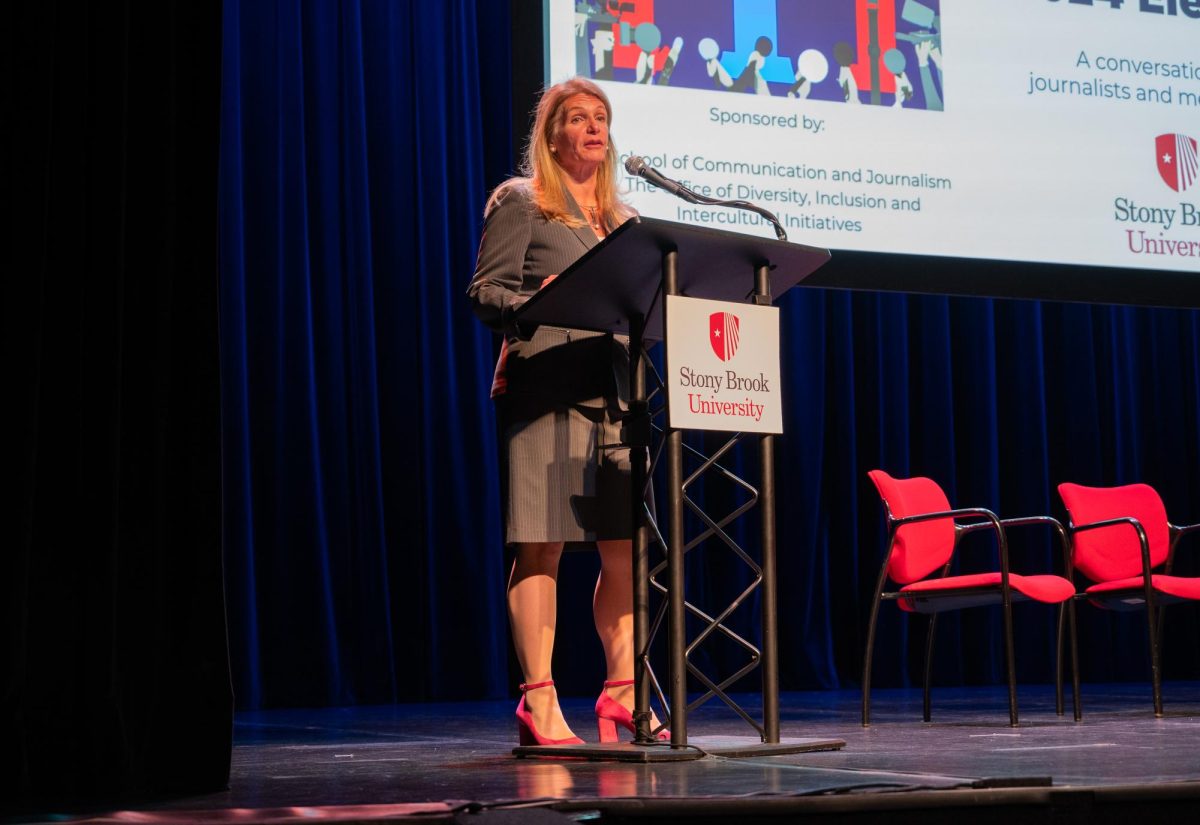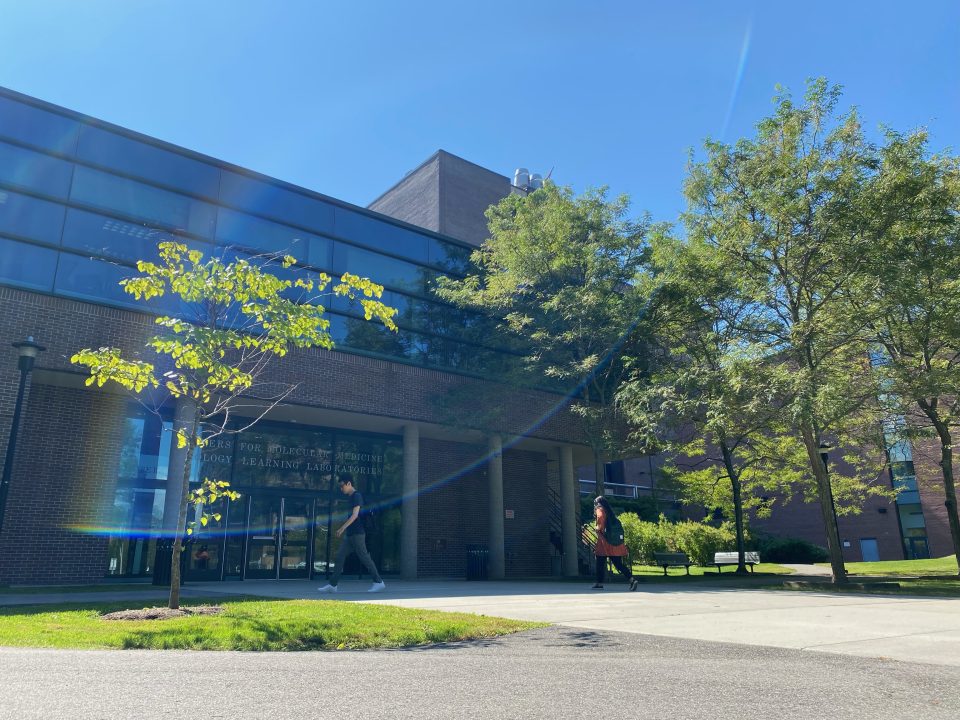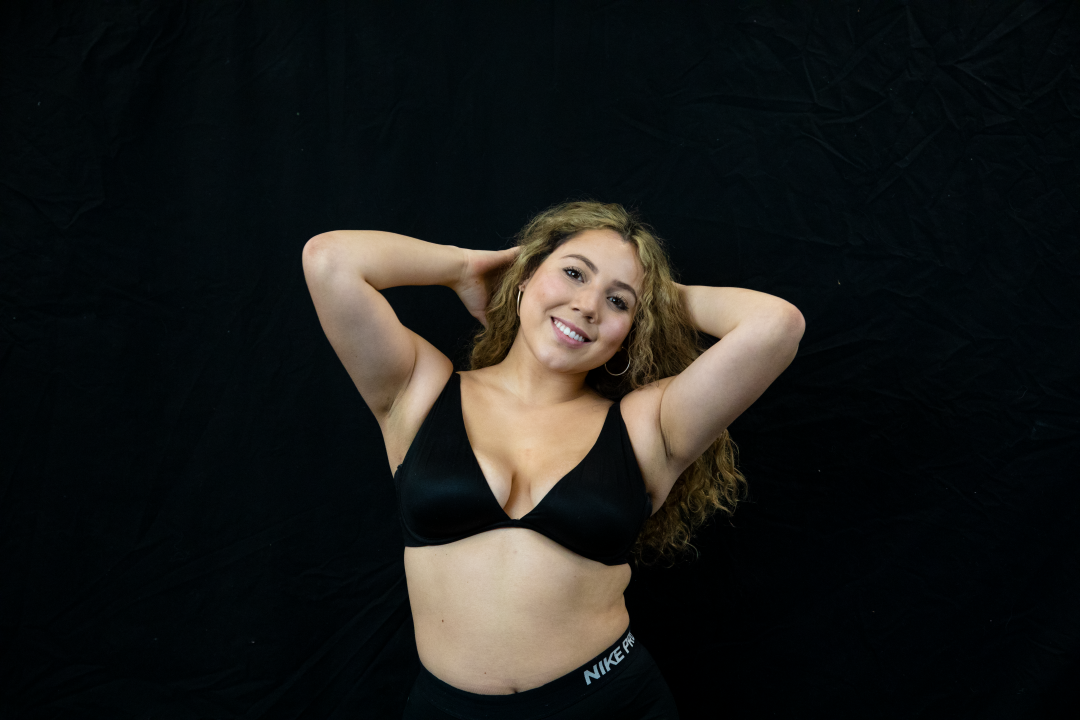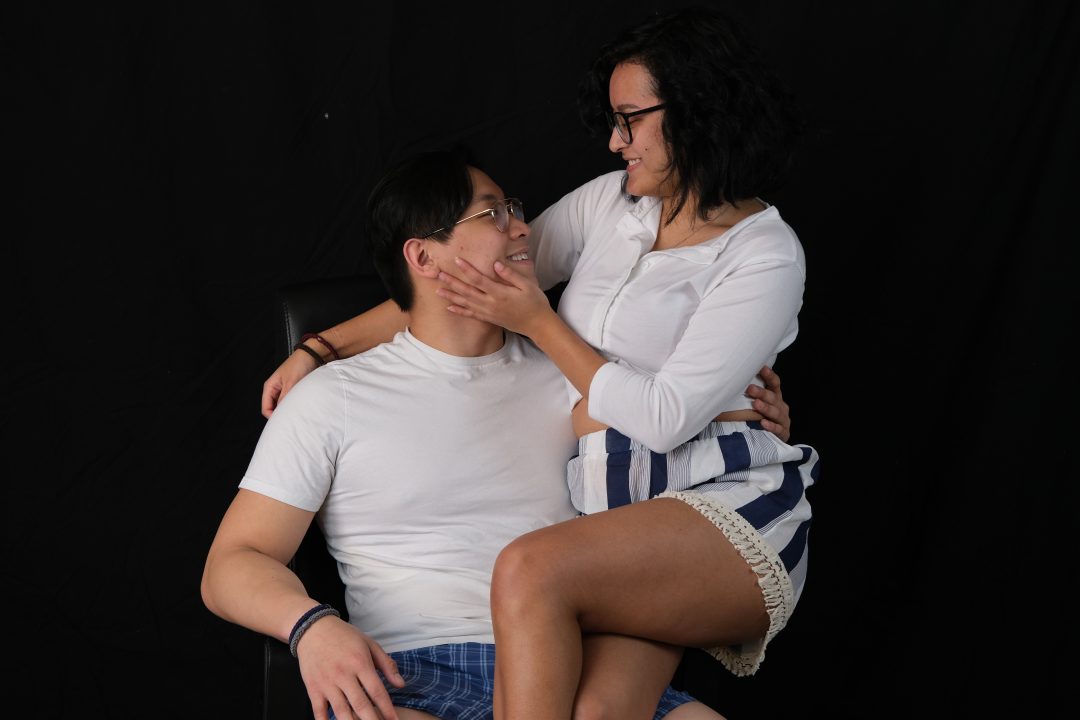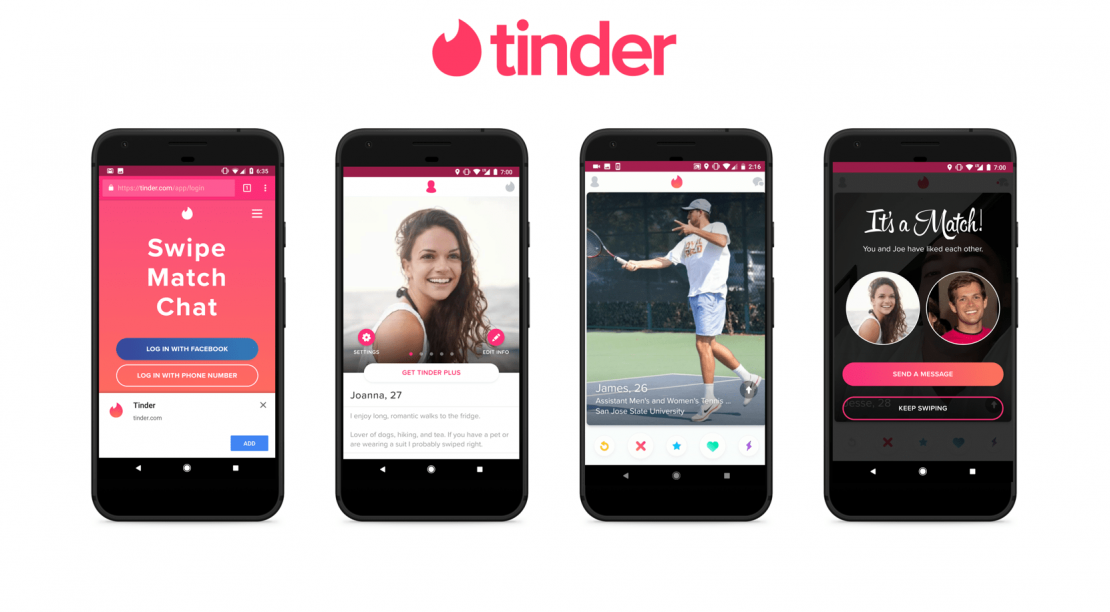
Editor’s Note: Some students quoted in this article are addressed only by first name. These students spoke to us on the condition that their last names be excluded.
Not a day goes by where Rebecca Danaher, a senior economics major at Stony Brook University (SBU), doesn’t track her calories, or go to the gym to lift the heaviest weights available.
When she was first introduced to intermittent fasting, she would initially fast for 18 hours of the day, leaving her only a six hour window to eat her daily limit of 1,600 calories.
Danaher has struggled with anorexia nervosa — an eating disorder characterized by distorted body image and a compulsive fear of being overweight — since the age of 13. She is now 22.
“I am still recovering, I still feel like my worth is based around my weight, and I still feel guilty for every single thing I eat,” Danaher said. “I hate that diet culture did this to me and did this to so many people. In all honesty, I do not know if I will ever recover from my eating disorder, considering it has been etched into my brain since puberty.”
Danaher said her eating disorder was exacerbated by diet culture, a system of beliefs that worships thinness and equates it to health and moral virtue. Diet culture promotes weight loss as a means of attaining higher social status and demonizes certain ways of eating while elevating others. It damages the mental and physical health of people who don’t match up with its supposed picture of “health,” according to eating disorders dietitian Christy Harrison.
In November 2020, the Centers for Disease Control and Prevention reported that more people are dieting now compared to 10 years ago.
Diet culture can be seen in the media through “heavily photoshopped and edited posts from influencers that are body-focused,” communities that promote ‘thinspo’ and ‘fitspo,’ and “sponsored ads for diet products,” according to Ariel Beccia, a Ph.D. candidate at the University of Massachusetts Medical School whose master thesis focused on eating disorders.
However, what Danaher said has helped her recover from her eating disorder — and what’s helping her to learn to fall in love with herself — is the body positivity movement.
Body positivity is the belief that people deserve to embrace and accept their bodies, no matter what society and popular culture view as the ideal. The movement has been getting traction on social media, with people showing off pictures of their bodies and quotes of self love and acceptance.
“Body positivity is a social movement in opposition to diet culture, one that aims to counter diet culture’s beliefs and provide an alternative ideology,” Beccia said.
Negative views of one’s body also connects to eating disorders, in which people experience severe disturbances in their eating behaviors. Eating disorders include anorexia nervosa, bulimia nervosa and binge eating. A negative body image can cause those with eating disorders to place a high value on their body shape and weight when determining their own self-worth.
Sasha, a freshman chemistry major at SBU, experienced this when she was a ballet dancer and found herself developing unhealthy eating habits due to the desire to have a “perfect” body image.
“From my personal experience in ballet, many dancers that were just thinner were often preferred in social media marketing or in marketing in general over ballerinas that were more well-built,” she said. “It really didn’t matter who was more talented or who was a better dancer, it only mattered what your weight was. Many people in ballet still try to slim down when they are actually extremely healthy.”
Finding herself over-exercising, Sasha began to get muscular legs and immediately became ashamed of them. To get back to her previous shape, she would often try to go all day without consuming any food, only drinking water.
“I would be frustrated with myself and I would cry and try to ask God for my thin beautiful legs again,” she said.
Sasha is still recovering from body dysmorphia.
“People with things like body dysmorphia often don’t recover, they just learn to cope with it,” she said.
Sasha is only one of many that have struggled with body image. By age six, girls start to express concerns about their own weight or shape, and 40-60% of elementary school girls are concerned about their weight or about becoming too fat, according to a National Eating Disorders Association report.
Alex, a junior health science major at Stony Brook University, fell into her binge-eating disorder during her sophomore year of college when she found comfort in fitness and went on a body-builder diet. She used to binge-eat about 3,000 to 4,000 calories in one sitting.
“I think we need to definitely make a distinction between diet culture and nutrition,” Alex said. “I think a lot of people, when they first get into fitness, it’s probably sparked by wanting to change how they look.”
When the pandemic began and Alex lost access to fitness centers, it helped her begin to recover from her eating disorder. The diet that she relied on while she was going to the gym affected how she viewed her body.
Christina Frangione, a registered dietitian and certified intuitive eating counselor based out of Centerport, says that weight loss through diet culture is idolized.
“When awareness is brought to diet culture, it allows for people to get angry at something outside of themselves,” she said. “It allows people who have been fighting their bodies for most of their lives, people who have been on diets for as long as they can remember and still don’t like their bodies or still haven’t gotten to their ‘ideal’ size to finally realize that it is not their fault and it was never their fault for not achieving the promised goal.”
The question is, can diets ever be body positive?
Beccia wrote an article that questioned this exactly back in 2017. At the time, Beccia was a few years out from her own recovery from an eating disorder and body image issues.
“The body-positive movement is rooted in ideals such as self-love and appreciation; it’s a backlash against a diet culture that defines beautiful as slim and encourages us to continually strive for ‘better bodies,’” Beccia wrote in the article.
To combat the “perfect body” image that can be seen in popular culture, the Association for Size Diversity and Health created the Health at Every Size (HAES) Approach, which promotes balanced eating, life-enhancing physical activity, and respect for the diversity of body shapes and sizes.
Carolina Ruiz, a junior biology major at Stony Brook, supports the HAES approach and as a Latina herself, resonates with the diversity of body shapes and sizes.
“Most of the women I grew up seeing were skinny, white women,” she said. “My body physique didn’t match what I grew up seeing and thus always fed into the ideal that I needed to change. Being mindful of diversity and displaying the bodies of women from different cultures is something that could help young girls battling disorders today and allow them to see some form of reflection in themselves.”
Ruiz had an eating disorder for six years, which has impacted her well being and physical health. It started with minimizing what she ate, skipping meals and constantly judging her body shape.
“From the ages of 12 to 18, I couldn’t withstand strenuous physical activity and I honestly couldn’t even count up the amount of times I’ve passed out in life up to this point,” Ruiz said.
She found recovery through body positivity and by picturing her future self content with who she is.
Frangione uses the HAES approach when treating all of her clients.
“There needs to be a detangling of the individual and their eating disorder and the person must begin to carve out a new identity for themselves separate from the eating disorder,” Frangione said. “There needs to be work on body image and acknowledgment of having a body knowing that bodies will change over time.”
Mary Jelkovsky, an author and speaker on women’s self-love, is also a supporter of the HAES approach and believes that it should be a training requirement for medical professionals.
“It’s a gentler approach to health; it’s more nuanced and it takes into account individuals,” she said.
Jelkovsky had her own personal experience with diet culture that started during her middle school years when she began dance lessons and going to the gym daily. She fell into a “vicious cycle” of restrictive eating and binge-eating. Then, she entered herself into bikini fitness model competitions, which only made her eating disorder worse.
After seven years, Jelkovsky has recovered and has now found freedom from her disorder.
She went on to create the platform “Mary’s Cup of Tea,” which consists of self-love and healing posts, a blog, podcast and worldwide retreats. The goal of the platform is to inspire women to embrace their bodies and love themselves unconditionally.
“I started the platform to provide some sort of solace to everybody going through eating disorders,” she said.
She also hosted a Tedx talk about body image and self-love entitled “Our Bodies are Not an Image” in January 2020. During the talk, Jelkovsky says that the body is not an image, but rather an experience that allows people to go places, do activities and accomplish goals. She stressed that in order to heal body-image struggles and build self-confidence, individuals must cultivate unconditional self-love, which starts with appreciating the body for all it does.
“Reminding myself that the body is an experience is just a good way to focus on how I’m feeling, as opposed to, ‘I think I look what I think other people think I look like,’” she said. “Body positivity has been a door to a lot of healing and personal growth.”
Dara Kapoor, the digital content director at Health magazine, defines body positivity as embracing a diverse range of sizes.
“The more individuals embrace their natural shapes and demand more from the fashion and media industry, the more everyone learns that there is not one size of beauty, or even health,” she said. “The truth is, anyone can be body positive as long as they’re not constantly faced with judgement and criticism. It’s a tall order to expect people to feel good about themselves if others continue to discriminate.”
People struggling with eating disorders can call the National Eating Disorders Association (NEDA) Hotline at 1-800-931-2237.







